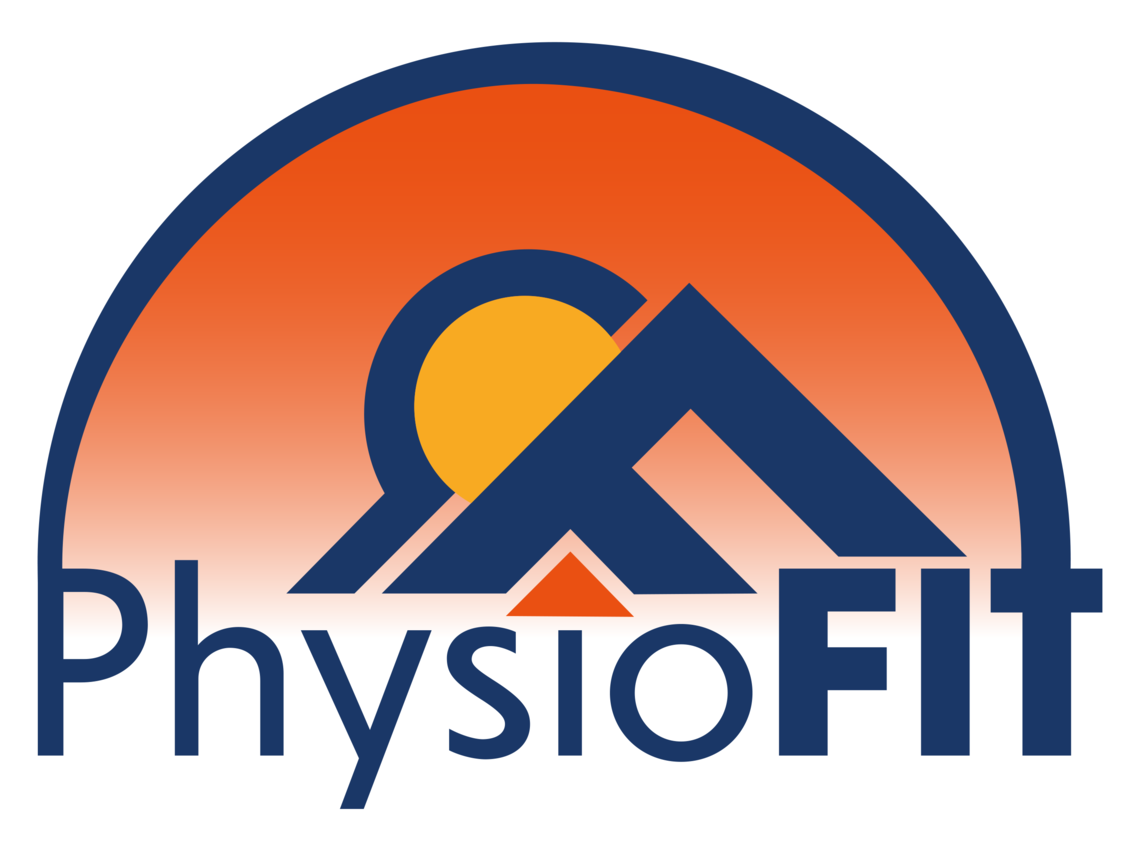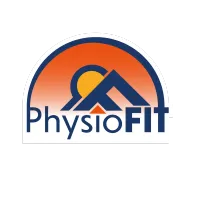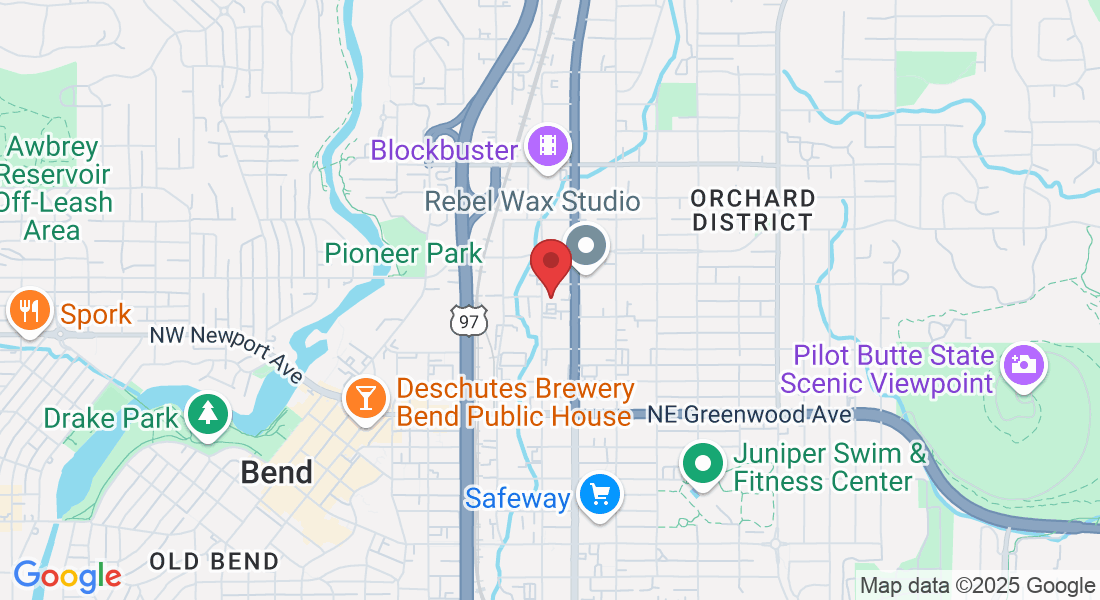TMJ Relief
Unlock Relief From TMJ Pain
If you're struggling with discomfort and dysfunction in your jaw, you've come to the right place. Temporomandibular joint (TMJ) disorders, or TMD, as they are also known, can severely impact the quality of your life, leading to significant jaw pain, headaches, and hindrances in performing simple tasks like opening and closing your mouth. By diving deeper into understanding the complexities of TMJ disorders, we're equipped to provide innovative and tailored physical therapy solutions for effective TMJ pain relief.
Experience TMJ Relief like Never Before with PhysioFit: We take a deeply personalized approach to your health, comprehending that every TMJ pain sufferer requires a unique treatment plan. Leveraging the power of evidence-based, fitness-driven physical therapy in bend, we strive to offer more than temporary relief. We aspire to improve your overall well-being, stave off persistent pain and accelorate your recovery process, allowing you to effortlessly resume your normal life.
What You Should Know
Healthcare providers classify TMDs into three categories:
Disorders of Your Jaw Joints: These involve complications in the jaw joints themselves, often manifesting as clicking, popping, or grating sounds during jaw movement.
Disorders of Your Chewing Muscles: This category includes issues related to the muscles responsible for chewing, where patients may experience persistent or intermittent muscle pain.
Headaches That Result From TMD: A significant fraction of TMD sufferers may experience headaches or migraines as a consequence of jaw joint or muscle dysfunction, significantly affecting their quality of life.
A proper diagnosis of a TMJ or TMD problem involves a thorough evaluation from a professional.

Some of The Most Common Causes of TMJ Pain
The onset of TMD isn't attributed to one solitary cause. Instead, it tends to emerge from a diverse array of factors, often in combination.
Jaw injury: Injuries such as a broken or dislocated jaw can directly affect the temporomandibular joint, leading to TMJ disorders. Such physical trauma can disrupt the alignment and smooth functioning of the jaw joint, inducing pain and discomfort.
Teeth Grinding or Clenching (bruxism): Frequent teeth grinding or clenching, often a subconscious habit during sleep or periods of stress, can exert excessive pressure on the TMJ, contributing to its dysfunction. Over time, this can lead to wear and tear, causing persistent pain and other TMJ-related symptoms.
Arthritis in Your Jaw Joint: Arthritis, an inflammatory condition, can affect any joint in your body, including the TMJ. The inflammation and degeneration associated with arthritis can cause joint pain and stiffness, impairing normal jaw movement.
Malocclusion: Malocclusion refers to the misalignment of teeth when the jaws are closed, which can put additional strain on the TMJ. This imbalance can force the jaw joint to work harder to achieve efficient biting and chewing, increasing the risk of TMJ disorders.
Stress: High levels of stress can lead to physical manifestations such as increased muscle tension or clenching of teeth, both of which can place undue strain on the TMJ. Chronic stress can exacerbate these physical responses, thereby contributing to TMJ pain and dysfunction over time.
If any of this information resonates with your current situation, we urge you to schedule an appointment with us immediately. Don't let hip pain diminish your life quality - allow us to help you embark on the path to relief today.
Can I Prevent TMD or TMJ Pain?
While it's true that certain risk factors contributing to TMJ dysfunction are beyond our control, there are still practical steps you can take to minimize the likelihood of developing this condition:
Make Use of a Mouth Guard During Sleep: Nighttime teeth clenching or grinding, known as bruxism, can significantly contribute to TMJ dysfunction. By wearing a mouth guard as you sleep, you can effectively mitigate this risk, protecting your jaw joints from undue pressure.
Ensure You're Protected in High-Risk Situations: When participating in contact sports, your facial area is more susceptible to injuries. Utilizing a mouth guard during such activities can offer invaluable protection for your jaw, reducing the risk of TMD.
Prioritize Maintaining Good Posture: The alignment of your neck and head plays a vital role in the functioning of your jaw. By ensuring good posture, you can maintain optimal alignment, thereby reducing strain on your TMJ.
Embrace Stress Reduction Practices: Stress can lead to unconscious habits such as jaw clenching, which can exacerbate or lead to TMD. Techniques such as meditation or mindfulness exercises can help manage your stress levels, offering indirect yet essential protection against TMJ dysfunction.
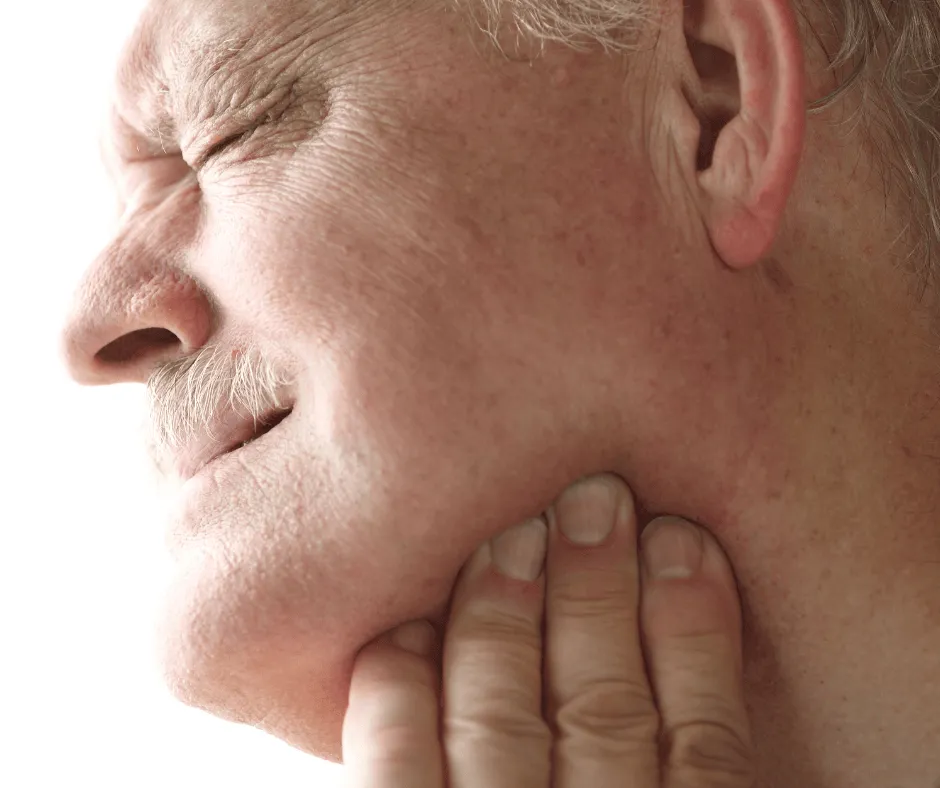
Common Symptoms of TMJ Pain
Jaw Tightening or Stiffness
Jaw Pain
Jaw Clicking or Popping
Trouble Closing or Opening Your Mouth.
Headaches or Migraines
Earaches or Toothaches
Ringing in Your Ears (tinnitus)
Teeth Fitting Together Differently (malocclusion)
Remember, if you resonate with any of the symptoms or conditions mentioned, we highly recommend making an appointment with us for a thorough evaluation and personalized treatment plan.
Please Note: The information provided on our website is intended for general education and is not a substitute for professional medical advice. Each individual's situation and body is different. Therefore, what may work for one person may not work for another. We care about your well-being and advise you to reach out to us to discuss your specific needs before implementing any advice from our website.
Your Source for All Things Physical Therapy in Bend Oregon
The PhysioBlog
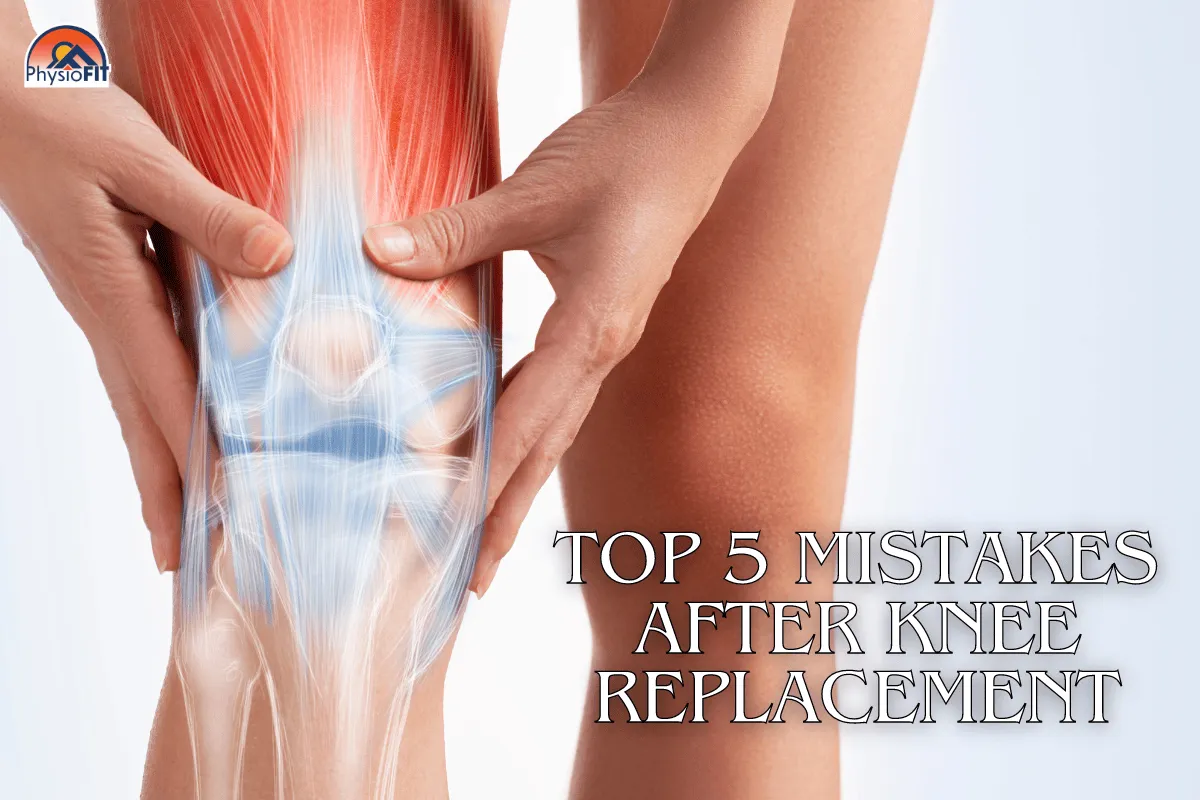
Top 5 Mistakes After Knee Replacement
Top 5 Mistakes After Knee Replacement
Please Note: The information provided on our website is intended for general education and is not a substitute for professional medical advice. Each individual's situation and body are different. Therefore, what may work for one person may not work for another. We care about your well-being and advise you to reach out to us to discuss your specific needs before implementing any advice from our website. If you’d like to explore this more or would like to schedule a time with a physical therapist in Bend Oregon, contact us at PhysioFITBend.com
Introduction
Navigating Knee Replacement Recovery in Bend, Oregon
In Bend, Oregon, knee replacement surgery is more than a medical procedure; it's a journey towards a pain-free, active lifestyle. At PhysioFIT, we understand this journey intimately. While knee replacement can be life-changing, the path to recovery is critical. Missteps can delay healing and impact outcomes. This article explores the top five mistakes to avoid after your surgery, ensuring your recovery is as effective and smooth as possible.
Mistake 1: Overlooking Post-Surgery Lifestyle Adjustments
Preparing Your Home and Life for Recovery
Adapting your living space for post-surgery recovery is crucial. Many patients underestimate the limitations they'll face immediately after surgery. At PhysioFIT, we encourage patients to consider home modifications, such as arranging a ground-floor living space and preparing easy-access meal options. We provide personalized consultations to help our Bend community prepare their homes and lives for the recovery phase.
Mistake 2: Inconsistent Pain Management
Effective Pain Control: A Cornerstone of Recovery
Managing pain is not just about comfort; it's about enabling active participation in rehabilitation. Irregular use of prescribed pain medication can lead to a debilitating cycle of discomfort and hindered mobility. At PhysioFIT, our pain management strategies are tailored to each individual, ensuring a balance between relief and recovery.
Mistake 3: Neglecting Physical Therapy and Exercise
The Role of Rehabilitation in Knee Recovery
Physical therapy is the bedrock of successful knee replacement recovery. Skipping sessions or not fully committing to the exercise regimen can result in stiffness and reduced mobility. Our PhysioFIT experts design customized therapy plans, keeping in mind the unique lifestyles of our Bend clients, ensuring that each step in the therapy process is both manageable and effective.

Mistake 4: Rushing Back into Activities
Finding the Right Pace for Activity Post-Surgery
The eagerness to return to normal life can lead to overexertion, causing setbacks in recovery. Understanding the fine line between necessary activity and overdoing it is essential. Our PhysioFIT team guides patients in gradually resuming activities, balancing rest and movement to foster optimal healing.
Mistake 5: Skipping Pre-Surgery Conditioning
The Impact of Prehab on Recovery Outcomes
Pre-surgery conditioning, or prehab, plays a significant role in enhancing post-surgery recovery. Building strength and flexibility prior to surgery can lead to better post-operative outcomes. Our prehab programs at PhysioFIT are designed to prepare your body for the demands of surgery and speed up the recovery process.
Conclusion
Join PhysioFIT for a Successful Knee Replacement Journey
Avoiding these five common mistakes can significantly influence your recovery after a knee replacement. Remember, each decision and action during your recovery can greatly impact the overall success of your surgery. If you're in Bend, Oregon, and preparing for or recovering from knee replacement surgery, PhysioFIT is here to guide you every step of the way. Visit PhysioFIT or call us to schedule a consultation. Let's work together towards a successful recovery and a return to the active, pain-free life you love.
Frequently Asked Questions
Navigating Common Concerns After Knee Replacement
What is the most commonly reported problem after knee replacement surgery?
The most commonly reported issue is stiffness or limited range of motion in the knee. Regular physical therapy and exercises are crucial to prevent and address this problem.
What can you never do after knee replacement?
High-impact activities such as running, jumping, or contact sports are generally discouraged after a knee replacement as they can put excessive stress on the new joint.
What are the red flags after total knee replacement?
Red flags include severe pain that doesn’t improve with medication, significant swelling, redness around the surgery site, fever, or any signs of infection. Any of these symptoms should prompt immediate medical consultation.
What is the maximum bend after knee replacement?
The goal is typically to achieve a range of motion close to 115 degrees, which is sufficient for most daily activities. However, the maximum bend can vary based on individual factors and the type of replacement used.
Please Note: It's important to note that any exercises or techniques that are shared should be performed under the guidance of a qualified physical therapy expert to ensure correct technique and to prevent injuries. A physical therapist can provide a customized exercise program based on the individual's fitness level, goals, and any existing injuries or conditions. If you’d like to explore this more or would like to schedule a time with a physical therapist in Bend Oregon, contact us at PhysioFITBend.com
Copyright PhysioFIT 2025 . All rights reserved
